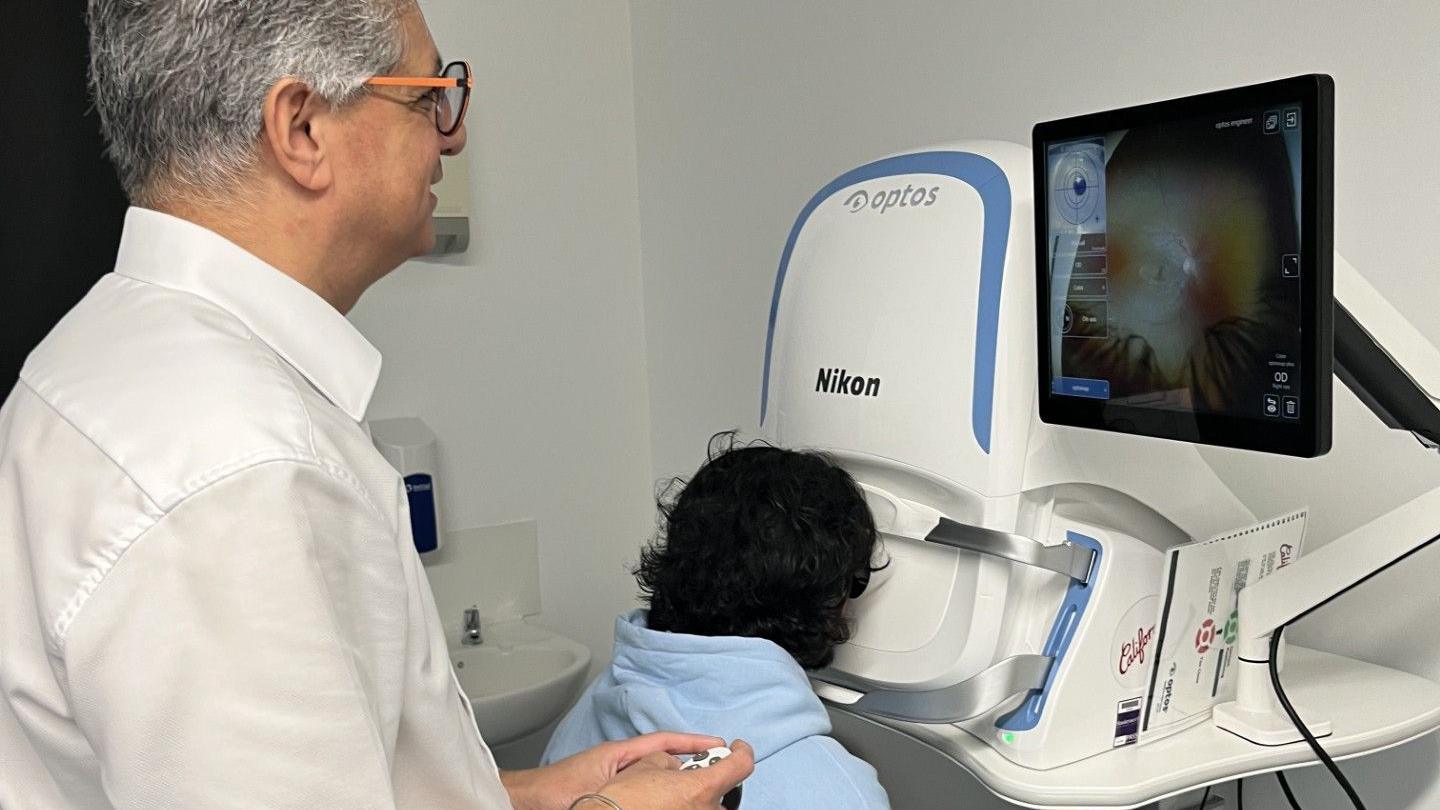Sister's cornea gift sparks appeal for more donors
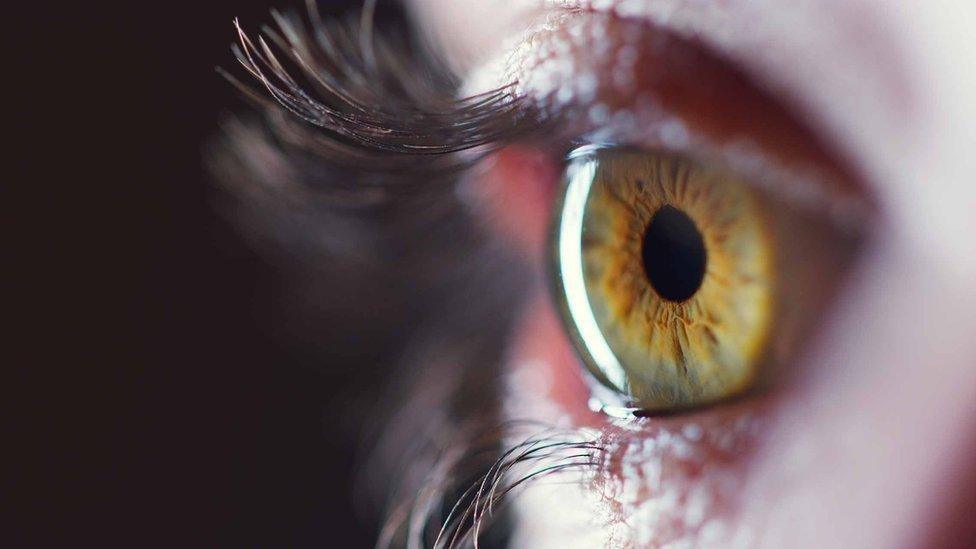
Thousands of people in the UK are waiting for a life-changing cornea transplant
- Published
A woman has urged people to consider cornea donation after the death of her sister led to someone else being given the gift of sight.
Louise Cosgrove died in a car accident in 1996 while driving from her home in Huddersfield to Wakefield for a training course, but she had always intended to donate her organs.
Due to her death being at the scene of a crash that was not possible, but her sister, Juliette Cosgrove, with the support of their family, decided instead to donate Louise's corneas.
Juliette, from Skipton, said: "I knew she would have wanted to donate anything she could have done, and actually thinking something positive might have come from it did help us."
Juliette said she and Louise had discussed organ donation regularly as they both worked for the NHS in donor co-ordinator roles.
She said their openness about that topic helped make the decision to donate easier after Louise's death, although the conversation with the family was still tough.
"It was difficult because the thing that everyone used to notice about Louise was her beautiful brown eyes, her eyes were her most striking feature," Juliette explained.
"We'd both supported families through organ donation. We'd talked about the privilege of being in that role and how important it was for families to support the donation of organs," she said.
"Because I knew her wishes, it was unequivocal: I knew she would have wanted to donate."
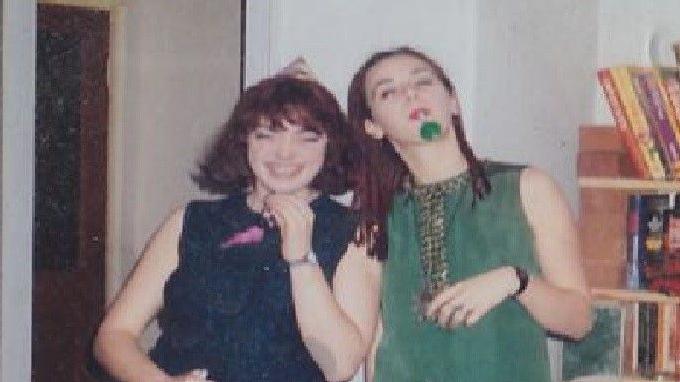
Juliette (right) pictured with her sister Louise (left)
The cornea is the clear, outer layer of the eye and is primarily responsible for allowing light to enter it.
In order to be transplanted, the whole eye is donated, but only the cornea and sclera - the white outer coating - are used in transplant surgery.
According to NHS figures, between April 2024 and April 2025, over 5,000 cornea transplants were successfully completed in the UK, however in the same period, the number of donors fell by 3% to 4,976 compared to the previous year.
The health service estimated that 70 donors a week were needed to keep up with demand and reduce the waiting list.
Kyle Bennett, assistant director of tissue and eye services at NHS Blood and Transplant, said: "There are not enough cornea donations to help those waiting for a life-changing transplant.
"Thousands of people are waiting for eye surgery which can transform their sight and their life. Giving the gift of sight is incredibly powerful and life-changing."
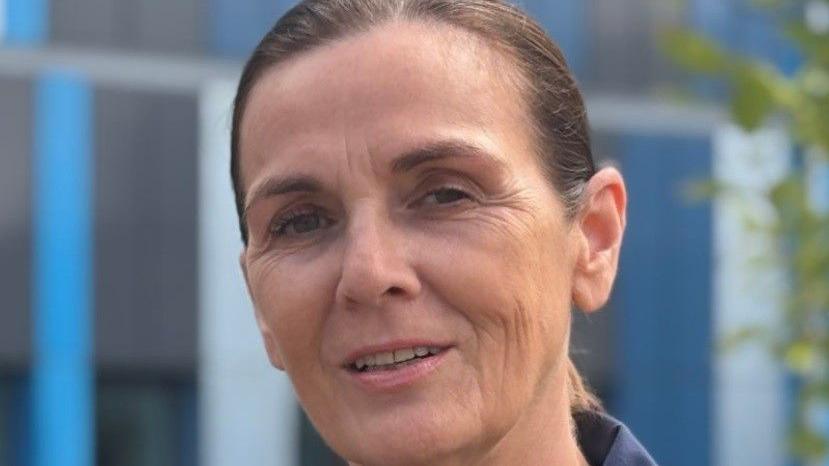
Juliette Cosgrove, now chief nurse at the NHS Trust's Northern Care Alliance, worked as a donor co-ordinator alongside her sister Louise
Juliette said she agreed, and insisted the decision to donate her sister's corneas gave her family "comfort" in in their loss.
"It does help to think there is some sort of purpose," she said.
"It can be quite a dark place to be, and the grief stays with you forever. But the opportunity to talk about something positive is really lovely."
Currently, of the 18% of people on the NHS Organ Donor Register who have chosen not to donate all organs, almost two thirds have declined to donate their corneas, which equates to about 3.3 million people.
Juliette said: "People find it difficult to talk about death, but we're all going to die. Once you're dead, you don't need them.
"I know that's a difficult thing to say, but it's important to have those difficult conversations. Don't be cynical about it, don't worry about it.
"The most important thing is that your family and friends are aware of your wishes. So, I'd really like people to talk and see if we can increase the number of donations.
"Most of us are generous, most of us will give, so it's an opportunity to make something good out of a difficult situation."
Get in touch
Tell us which stories we should cover in Yorkshire
Listen to highlights from West Yorkshire on BBC Sounds, catch up with the latest episode of Look North.
Related topics
- Published9 July
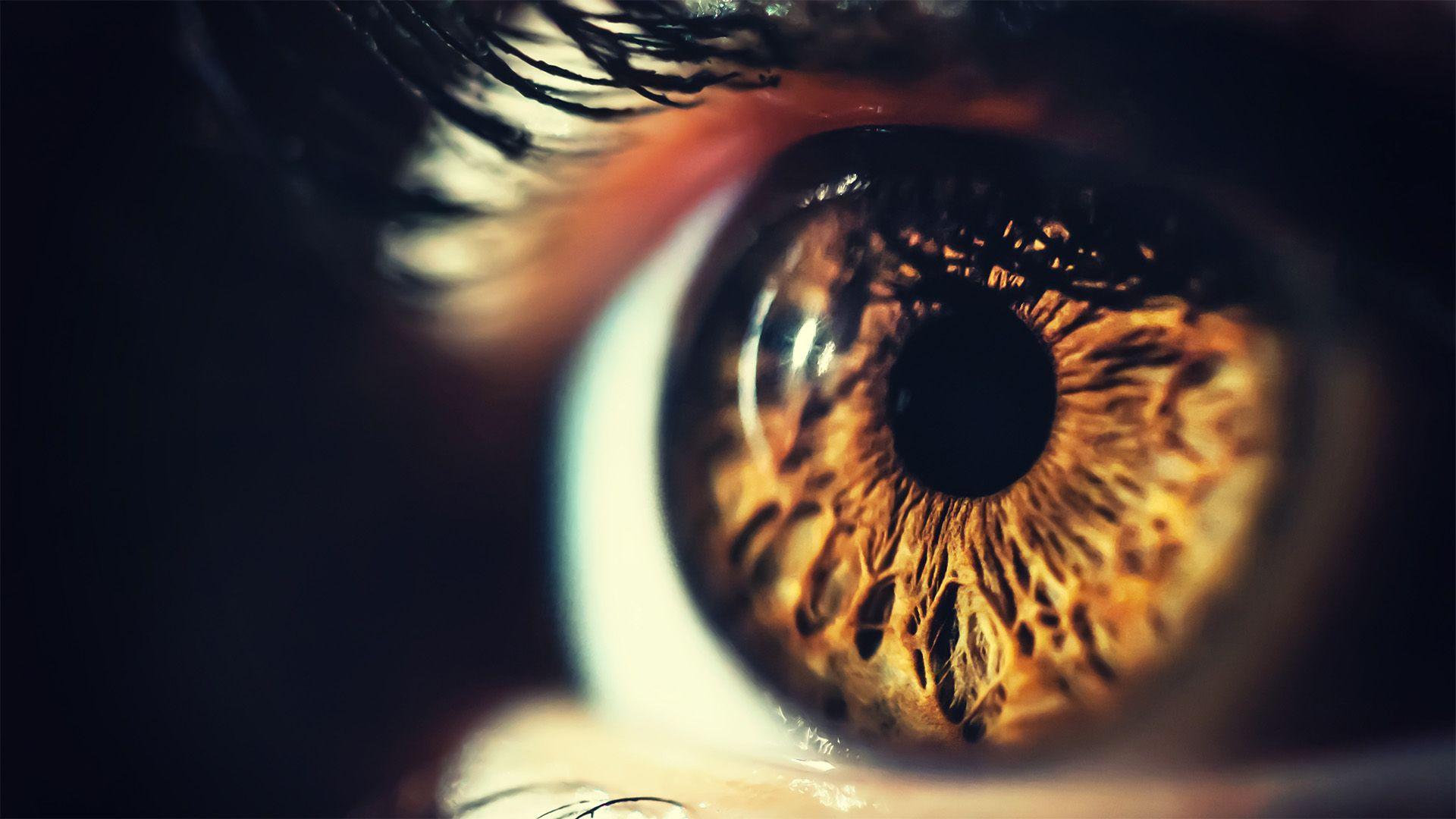
- Published11 September
